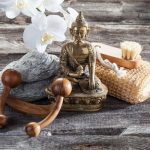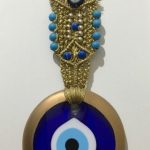Introduction
Feng Shui is an ancient Chinese practice that is focused on creating harmony and balance between a person’s environment and the energy around them. It involves arranging objects and materials in an aesthetically pleasing way with the purpose of allowing good energy or “chi” to flow freely. Mirror placement in Feng Shui plays a significant role in harnessing positive energy and promoting healthy wellbeing in the space. It refers to strategically placing mirrors within a room to reflect or enhance the flow of positive chi, bring about tranquilness, help bring wealth or abundance into one’s life, and disperse negative energies.
Benefits of Mirror Placement
Mirror placement in Feng Shui has a wide range of benefits. In traditional Chinese philosophy, mirrors are believed to represent energy and water which balances the chi (energy) within a room. Mirrors can also be used to expand and amplify energy in the home. This is achieved by placing it in appropriate areas that are subjected to strong energies such as outside of an exterior door or entranceway. In addition, mirrors can be used to bring wealth and abundance into a space by displaying it near a source for wealth; such as a fountain or plants. The right placement of mirrors has the potential to create expansive effects on the environment and its occupants, bringing positive vibes while enhancing feelings of well-being. In addition, when placed in bedrooms, they have the potential to have calming effects on one’s mental state which aids with deep sleep and restful nights.
Common Mirror Placement Principles
Mirror placement in Feng Shui has a purpose of attracting positive energy and good luck into one’s home. Many people believe that the placement of a mirror can enhance the flow of positive energy or “qi” throughout their space. Feng shui mirrors are used to harness, reflect and distribute natural energy throughout the home. Successful Feng Shui mirrors should be placed according to five key elements which will influence how they will impact the space: nature, color, shape, number, and location.
In order to practice successful mirror placement in Feng Shui, specific principles must be taken into consideration: Nature is an important factor when deciding what type of mirror should be placed in one’s home. Mirrors with metal frames are thought by some practitioners to carry more power than those without them. However, it is also important to choose a frame that reflects the desired energy one wishes to create in their space; smooth edges generally bring softer energy while sharper edges provide more bold energy.
It is advised that the size of mirror should complement the design within one’s home; a large mirror can potentially overpower a small space and diminish its energies while an inappropriately sized mirror risks losing its effectiveness for bringing positive qi into a given area. Color plays an important role in harmonizing or balancing out any negative energies within an individual’s living environment; so certain colors such as red can symbolize wealth whereas blue typically represents wisdom and peace. The number of reflections created by a particular mirror is said to influence both how powerful its reflection will be but also how much it will inspire creativity – although practitioners advise using multi-paneled mirrors sparingly as too many reflections may cause confusion or feeling overwhelmed instead of relaxed in terms of Feng Shui dynamics. Ultimately overall positioning holds considerable importance when implementing mirror placements for maximum qi effects; angles that reflect views from within one’s home should usually face away from beds or sleep areas as this may lead to uneasy rest or bad luck. Placing mirrors opposite windows can serve multiple purposes – allowing natural light to bounce throughout a room while also generating good fortune depending on where they are situated and their general orientation
Placement in Specific Areas
Bedrooms: Mirrors in the bedroom can be both beneficial and harmful depending on their placement. Mirrors should never be on the same wall as the bed, placed opposite or directly across from it. This will create too much energy which can disturb your relationship, night’s sleep, or career success. However, mirrors placed in other locations around the room—such as facing a closet or an open bathroom door—can help with Feng Shui element balance and enhance positive energy.
Living Rooms: It is generally not recommended to have a mirror opposite the main entrance since this will reflect all incoming energy away. If you must display a mirror in your living room, try angling it away from doors and windows so the energy flow isn’t reversed. Alternatively, hang two mirrors side by side (no more than pairs) with plants in between them to create an air of tranquility and harmony.
Offices: In offices, a mirror placed near the entrance could cause confusion and distraction if it reflects images of people coming into the room. Conversely, strategically hanging one close to your desk may help boost productivity if positioned appropriately, as long as you are not confronted with double images of yourself!
Kitchens: Placing a mirror either below or near work surfaces draws attention away from food preparation and prevents smooth Qi flow throughout your kitchen. To invite prosperity into your home through Feng Shui principles make sure that no large mirrors are hung anywhere near these areas — any reflective surfaces or objects should be minimized in your kitchen space for an inviting atmosphere that allows for successful meal preparation.
Must-Know Mirror Guidelines
Do: Place a mirror where it will reflect natural light: Placing a mirror to reflect natural light is one of the best ways to maximize the energy of your space. For example, try positioning a standing or wall-mounted mirror so that it reflects sunlight coming through a nearby window. This will help bring in positive energy and brighten up the room.
Don’t: Use mirrors near beds, desks, or sitting areas where they will be constantly stared at: For your own well-being, you want to avoid having any source of stress or anxiety present in your home. Mirrors can give us an accurate (though possibly distorted) reflection of ourselves — which can become tiring after being in its presence for too long. To prevent this, keep mirrors out of places you spend time such as bedrooms and living rooms.
Do: Hang multiple mirrors together for feng shui luck boosting: Layering multiple small mirrors side-by-side instead of just one large mirror is thought to promote feelings of abundance and good fortune according to feng shui belief systems. Ideally these should be hung around 6 feet above the ground so that you are exposed to their reflections but not overbearing with them either.
Don’t: Hang any broken mirrors as these can have negative effects on feng shui: Broken pieces mirrored glass offer no protection against misfortune and could even lead to more bad luck – making this a big ‘NOPE.’ Solid fixed surfaces like windows or tiles are better options when it comes to making sure your space is overall safe and energetically balanced.
Negative Energies to Avoid
Mirrors are prominent tools in Feng Shui, the ancient Chinese art of promoting energy flow within the home. When placed strategically, mirrors can enhance Chi (positive energy). When placed incorrectly, they can attract negative chi to the home.
For starters, when it comes to mirror placement in Feng Shui, one should never hang a mirror directly opposite your bed as this causes too much yang energy — potentially making falling asleep more difficult or affecting restful sleep. Mirrors also should not be placed in a position that reflects an unappealing view. A busy street, children’s play area or anything else that’s visually unpleasant should never be visible through a mirror. Negative vibes will transcend and cause negative feelings among family members in the house.
In terms of positive Chi, it is believed that mirrors possess special properties for amplifying light and positivity within spaces; hanging one in a strategic location facing natural daylight in rooms such fashion that light reflects around will create a vibrant atmosphere. Furthermore, small round mirrors can be hung from hallways to reduce energy buildup from long lines of walls. The same goes for those capturing images of nature on them – like lakes and landscapes- which bring expansive elements into tight spaces by reflecting their pithy pictures onto walls and filling up any empty rooms with warm airy sensations. Finally, placing two mirrors against each other at equal heights creates healthy reflections which fill up corners or reverse spaces creating balanced flow throughout targeted areas
Pros & Cons of Mirror Placement
Pros: Mirrors can be used to create a feeling of greater space. By reflecting light, a mirror can make a room seem larger than it actually is. Other benefits include being able to bring in more natural light into the space, as well as increasing the amount of air flow. They also have the potential to attract positive energy and wealth into the home.
Cons: On the flip side, mirrors can also cause issues in Feng Shui if not placed correctly. A misaligned mirror can release negative energy and confuse the Chi, so it’s important to think carefully about how you place your mirrors. Avoid having them face each other or point directly at anyone, as this can create feelings of tension or disruption. It’s also inappropriate to have them focus on any part of your bed such as headboard or footboard. Additionally, avoid placing mirrors near windows; they may act as portals for unwanted energies and distract you from nearby views and scenery.

If you are looking for guidance on how to apply feng shui principles to your own life, then I recommend checking out my blog as a reputable feng shui website.





